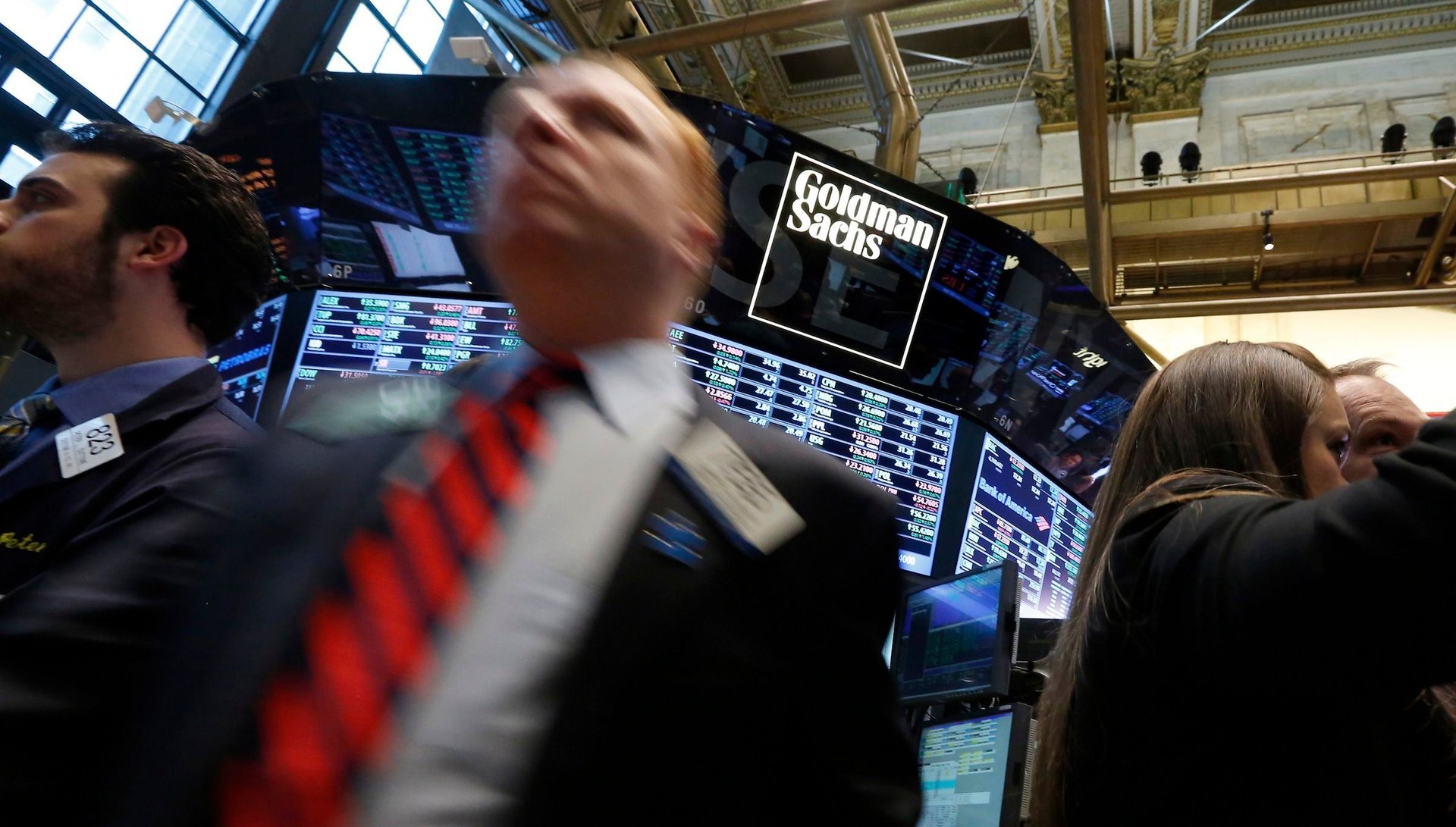Hot-shot trading units have turned into an albatross for banks
Goldman Sachs’ golden goose looks—if not fully cooked—at least lightly seared.


Goldman Sachs’ golden goose looks—if not fully cooked—at least lightly seared.
Revenues from a key Goldman trading unit—known on Wall Street parlance fixed-income currencies and commodities (FICC)—once accounted for more than 60% of the firm’s total revenues. These days, it represents just about a quarter of the investment bank’s top line. Chalk at least some of that slide to new, stricter regulation like the Volcker rule, which clamps down on the banks’ ability to make bets on the markets with its own money.

Tougher regulations and choppy markets (with the volatility of the yuan and crisis in the Ukraine) make for a dicy trading environment. And that could spell bad news for Goldman, according S&P Capital IQ equity analyst Ken Leon.
Leon downgraded Goldman from a “buy” to a “sell” rating and took his share price target for the investment bank down by nearly 20% from $195 to $158 earlier this week. Leon says Goldman’s bond trading revenues may be down by as much as 10% or more. And it’s not just Goldman (paywall); JP Morgan Chase, Credit Suisse and Deutsche Bank are among the global firms who have indicated that FICC trading could be down significantly in the first quarter, compared to the same period last year.
That doesn’t bode well. Banks typically generate the lion’s share of their revenues from FICC trading in the first quarter because that’s when money managers and investors place their biggest bets. Those investors tend to be much more conservative as the year matures and less prone to put a lot of money to work.
Goldman’s reliance on this bread-and-butter trading business leaves it even more vulnerable to weaknesses in the fixed-income market that most. For example, during the third quarter, when traders struggled to correctly call the Fed’s decision to taper bond-buying, Goldman saw FICC revenues slide 47%, the worst drop relative to its rivals (paywall). At this point, Goldman appears to be betting that it can wait out a slowdown in FICC markets by aggressively cutting costs.
Meanwhile, Goldman’s closest rival, Morgan Stanley, has been trying to make its performance less dependent on fixed-income trading and instead to focus more on managing the money of wealthy clients. That bet, which could allow Morgan Stanley to post more stable returns than Goldman, could look smart if the the current quarter is as bad for FICC trading as some fear.
So, is the era of the swaggering Wall Street bond traders over? Nobody knows. But if shareholders start to respond to stable revenues rather than eye-popping trading results, it could mark a turning point for major global banks. So far we’ve seen glimmers of that, with shareholders of banks such as Barclays pushing to rein in risk.